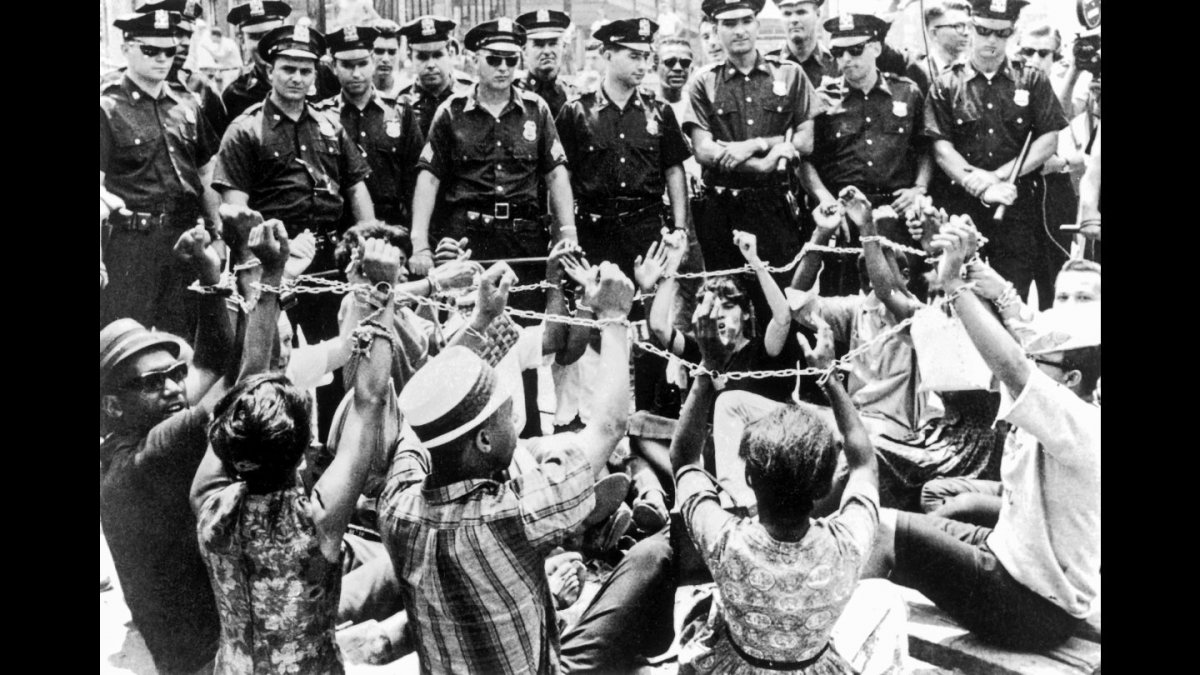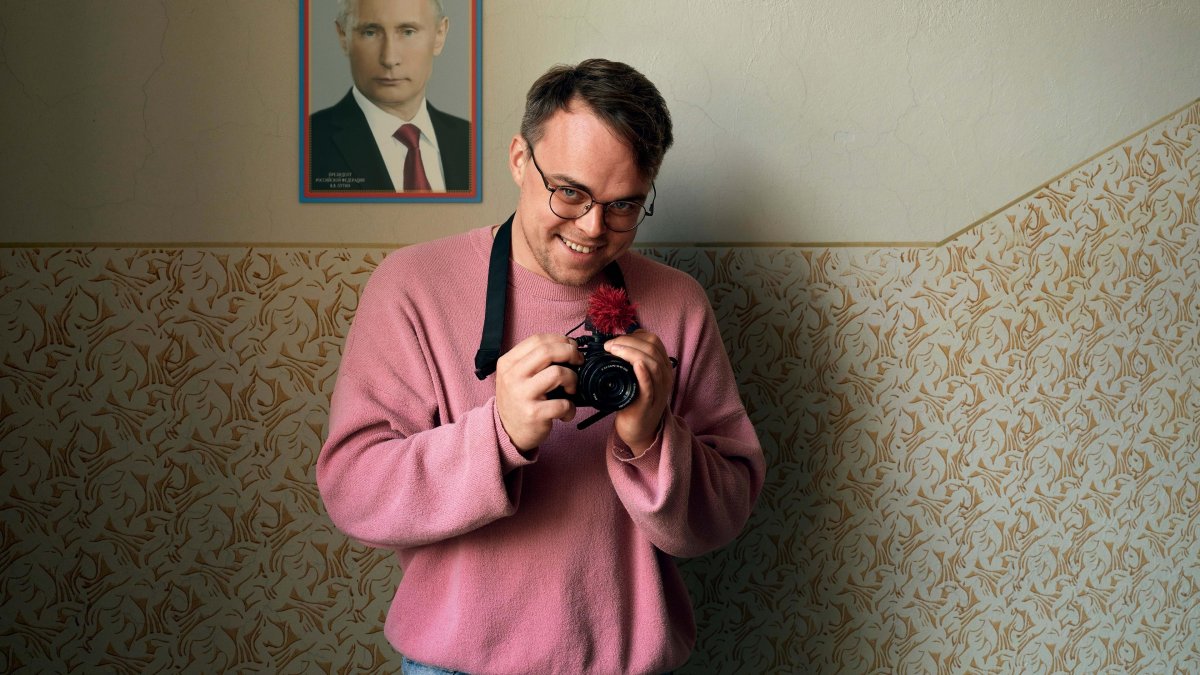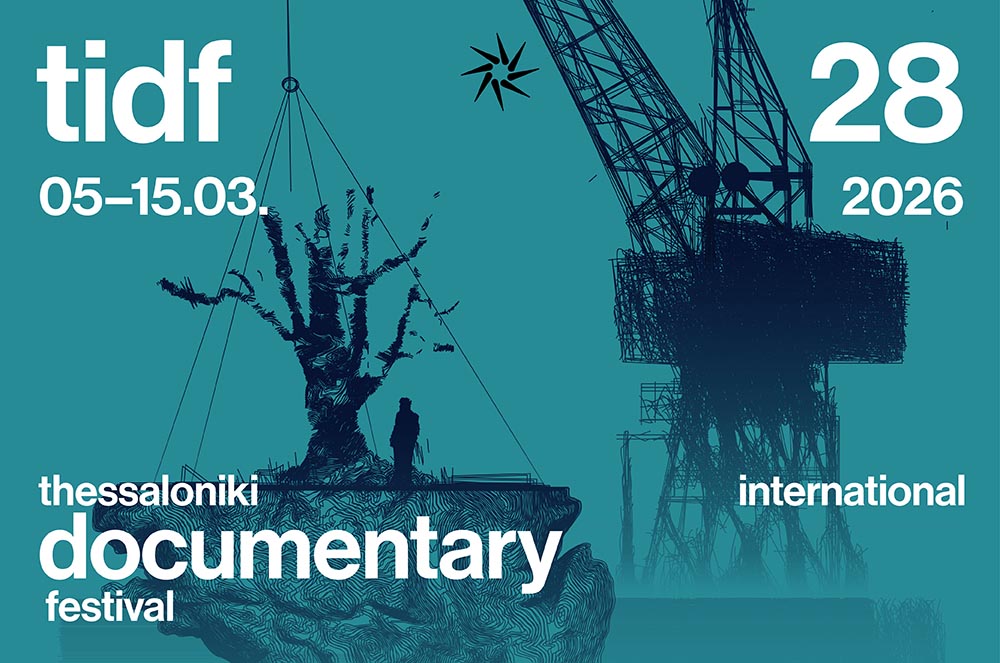Power and the Land

Screening Schedule
|
No physical screenings scheduled. |
- Script: Edwin Locke, Joris Ivens. Text: Stephen Vincent Benet
- Cinematography: Floyd Crosby, Arthur Ornitz
- Editing: Helen van Dongen
- Music: Douglas Moore
- Production: US Film Service, commissioned by REA (Rural Electrification Administration), US Ministry of Agriculture
- Narration: William P. Adams
- Format: 35mm B&W
- Production Country: USA
- Production Year: 1940
- Duration: 33
- Contact: For more information regarding word sales, please contact the Joris Ivens European Foundation: info@ivens.nl www.ivens.nl
Joris Ivens
Joris Ivens showed his last film, A Tale of the Wind, at the 1988 Venice Film Festival, where he received the Golden Lion for Career Achievement. The film marked the apex of sixty years of filmmaking for the “Flying Dutchman with a red heart”.
He was born in the Netherlands in 1898. Among his first films were the avant-garde masterpiece The Bridge and the poetic Rain. He was invited to the Soviet Union by Pudovkin and in 1932 made a film about the construction of a steel plant in the Urals. In 1936 the New Film Alliance invited Ivens to New york. There he started work on a project for the Rockefeller Foundation, but his stay in the United States was interrupted by the outbreak of the Spanish Civil War. He left for Spain where he made The Spanish Earth, “a film,” as President Roosevelt said, “the world should see.” In 1938 Ivens traveled to China, to bear witness against the Japanese invasion in his film The 400 Million. He spent World War II in the United States and Canada, and worked on the Japanese chapter for the famous series Why Are We Fighting? directed by Frank Capra, but the American Military authorities did not allow him to finish editing the film because they refused to consider the Emperor of Japan a war criminal. Ivens was devoted to reporting and political documentary, and in the following years he became a citizen of the world, participating in various international projects. In 1945, while living in Australia, his support for the Indonesian struggle for independence cost him his Dutch passport, so for the next ten years he made his home in central Europe, living and working in Prague, Warsaw, Lodz and Berlin. With the Cold War on the wane, in 1957 Ivens regained his passport and moved to Paris to make his lyrical film The Seine Meets Paris, which received a Golden Palm at Cannes. In 1958 he made Before Spring in China and the following year he was invited to Italy by Enrico Mattei to make a sociological statement in the film Italy Is not a Poor Country, for which Alberto Moravia wrote the text. He then traveled through Africa, documenting the process of emancipation and decolonization in Chad, Senegal and Mali. He explored the same themes in Cuba and Chile, in films which became increasingly lyrical without straying from their social concerns.
The year 1964 marked a retrospective of his work in the Netherlands and the making of his film poem The Mistral in France. From there he returned once more to Southeast Asia, working on films in war-torn Vietnam and Laos. His continuing fascination with China led him there in 1971 and, for the next five years, Ivens and Marceline Loridan documented daily life during the Cultural Revolution in their 12-hour series How Yukong Moved the Mountains. A retrospective of his work in 1979 in Florence brought Ivens back to Europe for some years, and he lived in Italy and France until 1985; that year he received an official apology from the Dutch government. The following year he returned to China with Loridan to make a project he had long dreamed of, A Tale of the Wind. Many years in the making, this film poem delves into the mystical connection between earth, wind, water and cultural artifacts. It was to be his final film. In it we see Ivens’s intuition, courage, faith and hope, the philosophy of a man who was never an indifferent participant in the events of his century. Joris Ivens died in Paris in June 1989.
He was born in the Netherlands in 1898. Among his first films were the avant-garde masterpiece The Bridge and the poetic Rain. He was invited to the Soviet Union by Pudovkin and in 1932 made a film about the construction of a steel plant in the Urals. In 1936 the New Film Alliance invited Ivens to New york. There he started work on a project for the Rockefeller Foundation, but his stay in the United States was interrupted by the outbreak of the Spanish Civil War. He left for Spain where he made The Spanish Earth, “a film,” as President Roosevelt said, “the world should see.” In 1938 Ivens traveled to China, to bear witness against the Japanese invasion in his film The 400 Million. He spent World War II in the United States and Canada, and worked on the Japanese chapter for the famous series Why Are We Fighting? directed by Frank Capra, but the American Military authorities did not allow him to finish editing the film because they refused to consider the Emperor of Japan a war criminal. Ivens was devoted to reporting and political documentary, and in the following years he became a citizen of the world, participating in various international projects. In 1945, while living in Australia, his support for the Indonesian struggle for independence cost him his Dutch passport, so for the next ten years he made his home in central Europe, living and working in Prague, Warsaw, Lodz and Berlin. With the Cold War on the wane, in 1957 Ivens regained his passport and moved to Paris to make his lyrical film The Seine Meets Paris, which received a Golden Palm at Cannes. In 1958 he made Before Spring in China and the following year he was invited to Italy by Enrico Mattei to make a sociological statement in the film Italy Is not a Poor Country, for which Alberto Moravia wrote the text. He then traveled through Africa, documenting the process of emancipation and decolonization in Chad, Senegal and Mali. He explored the same themes in Cuba and Chile, in films which became increasingly lyrical without straying from their social concerns.
The year 1964 marked a retrospective of his work in the Netherlands and the making of his film poem The Mistral in France. From there he returned once more to Southeast Asia, working on films in war-torn Vietnam and Laos. His continuing fascination with China led him there in 1971 and, for the next five years, Ivens and Marceline Loridan documented daily life during the Cultural Revolution in their 12-hour series How Yukong Moved the Mountains. A retrospective of his work in 1979 in Florence brought Ivens back to Europe for some years, and he lived in Italy and France until 1985; that year he received an official apology from the Dutch government. The following year he returned to China with Loridan to make a project he had long dreamed of, A Tale of the Wind. Many years in the making, this film poem delves into the mystical connection between earth, wind, water and cultural artifacts. It was to be his final film. In it we see Ivens’s intuition, courage, faith and hope, the philosophy of a man who was never an indifferent participant in the events of his century. Joris Ivens died in Paris in June 1989.
Filmography
(selected)
1912 De wigwam/The Tipi
1927 Etudes des mouvements a Paris/Study of Movements in Paris
1928 De brug/The Bridge
1929 Branding/Breakers
1929 Ik-film/I film
1929 Schaatsenrijden/Ice Skating
1929 Arm Drenthe (De nood in de Drentsche venen)/Poor Drenthe (The Misery in the Peat-moors of Drenthe
1929 Regen/Rain
1930 We Are Building
1931 Philips Radio
1932 Creosoοt/Creosote
1932 Pesn o gerojach (Komsomol)/Komsomol or Song of Heroes
1933 Nieuwe gronden/New Earth
1934 Misere au Borinage/Borinage
1937 The Spanish Earth
1939 The 400 Million
1940 New Frontiers
1940 Power and the Land
1941 Our Russian Front
1946 Indonesia Calling!
1949 Pierwsze lata/The First years
1954 Das Lied der Strome/Song of the Rivers
1957 La Seine a rencontre Paris/The Seine Meets Paris
1958 Before Spring
1958 Six Hundred Million with you
1960 Italy Is not a Poor Country
1961 Carnet de viaje/Travel Notebook
1963 A Valparaiso/Valparaiso
1963 The Little Circus
1964 The Victory Train
1965 Pour le Mistral/For the Mistral
1966 Rotterdam Europoort/Rotterdam Europort
1967 Loin de Vietnam/Far from Vietnam
1968 Le Dix-Septieme parallele/The 17th Parallel
1976 Comment yukong deplaca les montagnes/How yukong Moved the Mountains
1988 Une Histoire du vent/A Tale of the Wind
1912 De wigwam/The Tipi
1927 Etudes des mouvements a Paris/Study of Movements in Paris
1928 De brug/The Bridge
1929 Branding/Breakers
1929 Ik-film/I film
1929 Schaatsenrijden/Ice Skating
1929 Arm Drenthe (De nood in de Drentsche venen)/Poor Drenthe (The Misery in the Peat-moors of Drenthe
1929 Regen/Rain
1930 We Are Building
1931 Philips Radio
1932 Creosoοt/Creosote
1932 Pesn o gerojach (Komsomol)/Komsomol or Song of Heroes
1933 Nieuwe gronden/New Earth
1934 Misere au Borinage/Borinage
1937 The Spanish Earth
1939 The 400 Million
1940 New Frontiers
1940 Power and the Land
1941 Our Russian Front
1946 Indonesia Calling!
1949 Pierwsze lata/The First years
1954 Das Lied der Strome/Song of the Rivers
1957 La Seine a rencontre Paris/The Seine Meets Paris
1958 Before Spring
1958 Six Hundred Million with you
1960 Italy Is not a Poor Country
1961 Carnet de viaje/Travel Notebook
1963 A Valparaiso/Valparaiso
1963 The Little Circus
1964 The Victory Train
1965 Pour le Mistral/For the Mistral
1966 Rotterdam Europoort/Rotterdam Europort
1967 Loin de Vietnam/Far from Vietnam
1968 Le Dix-Septieme parallele/The 17th Parallel
1976 Comment yukong deplaca les montagnes/How yukong Moved the Mountains
1988 Une Histoire du vent/A Tale of the Wind














